December 27, 2021
Chiapas, due to its geographical and cultural proximity to the Department of Petén, was the scene of our first international exchange; in which young people from communities with the higher connectivity restrictions represented their school groups with the mission of knowing how different technologies function technical and socially to adapt them to their territories and communities.
After the always difficult migratory crossing through that artificial border that divides Chiapas, Mexico, and northern Guatemala, we climbed from the warm lands of the Lacandon Jungle to the municipality of Ocosingo, known worldwide for being the epicenter of the Zapatista indigenous uprising in 1994.
Already in the mountains of the Altos de Chiapas, feeling the fresh and rebellious winds, the group arrived in the Abasolo community to learn about and discuss different processes of technological autonomy and communication, and community connectivity. Upon arriving in Abasolo, the Jitontik community radio family welcomed us with a delicious chicken broth, while our colleagues María and Adrián from the association Redes por la Equidad, la Diversidad y la Sustentabilidad A.C. and Lorena and Manuel from Boca de Polen were waiting for us at the table. Already feeling the cold, we set up our things to meet around a fire and share the experience of Jitontik radio, through the voices of Jesús and Genoveva.
This fire is symbolic, because following the tradition of the Purépecha peoples of western Mexico, like many others, when a reflection and discussion of the issues that concern the community is necessary, it is convened around the fire. The fire, in this case, not only invites us to reflect through listening and words, but also invites us to create, to materialize our dreams.
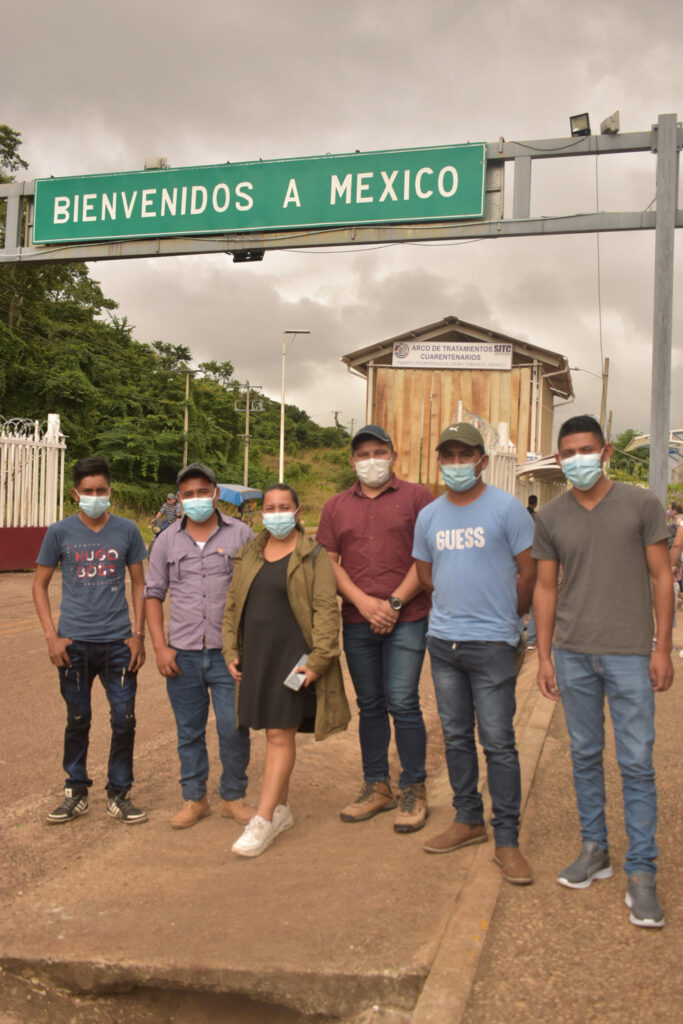
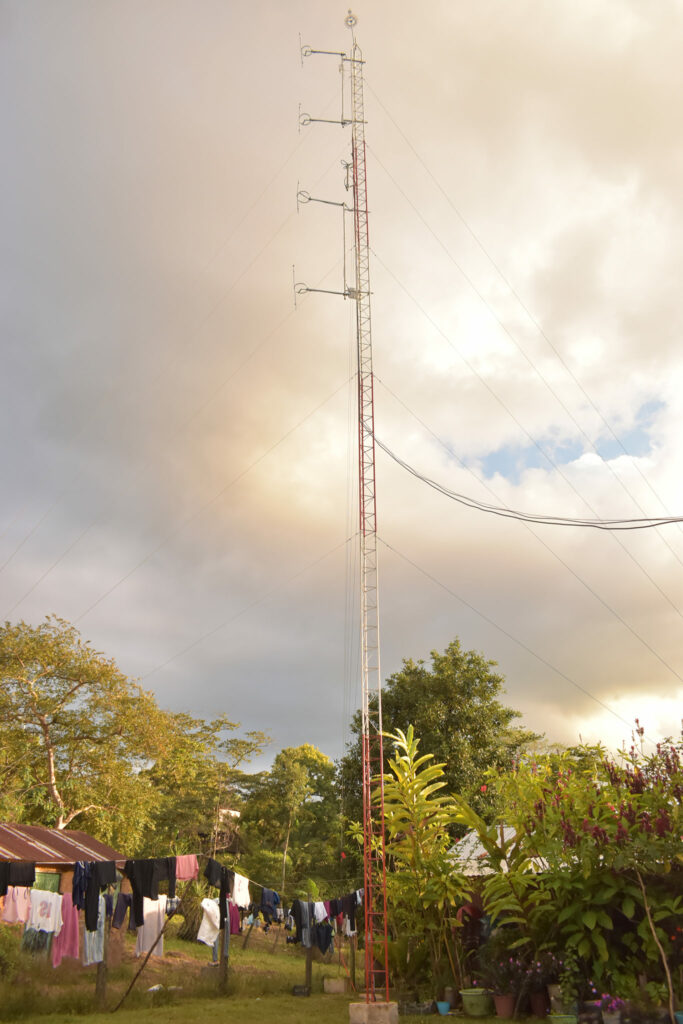
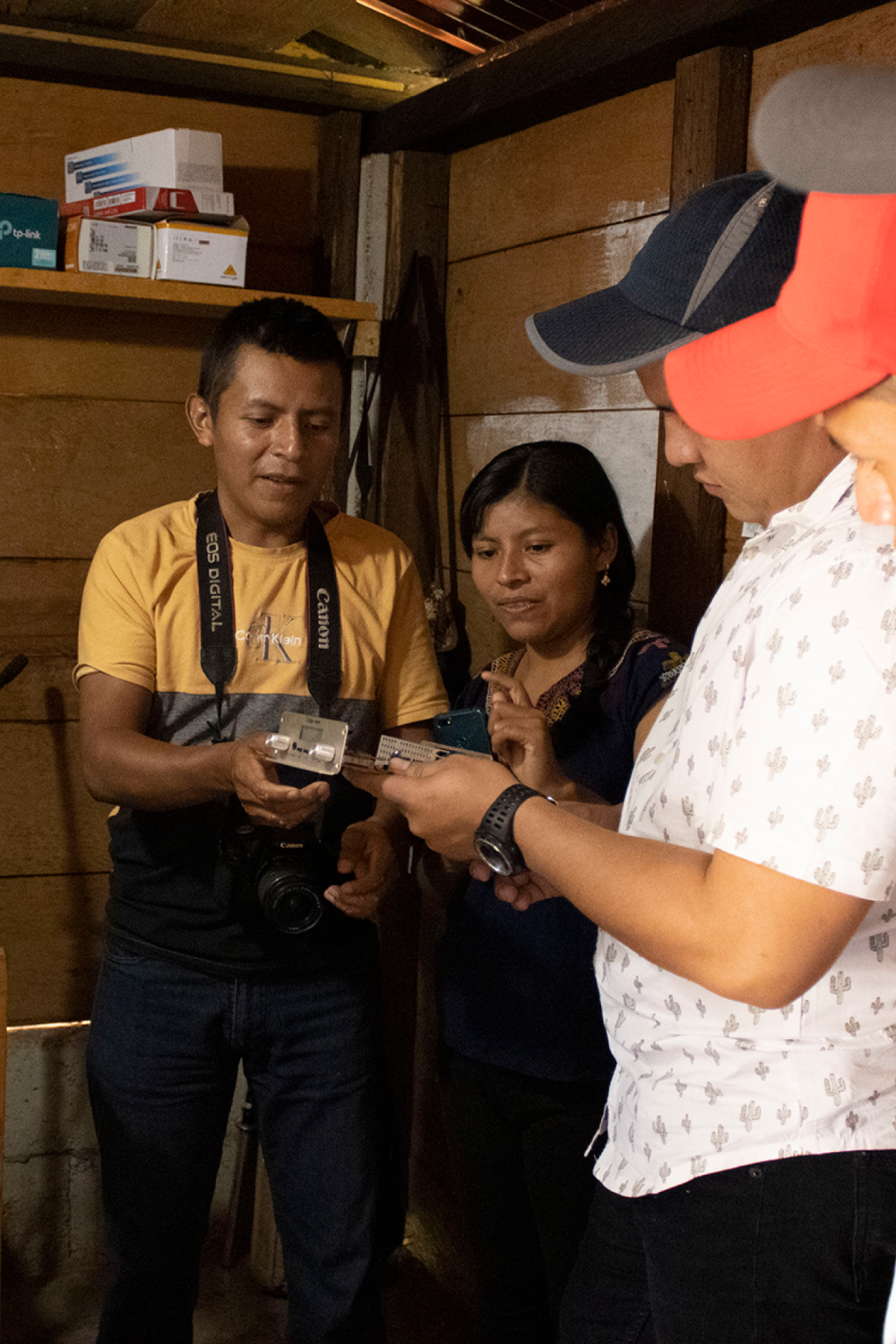
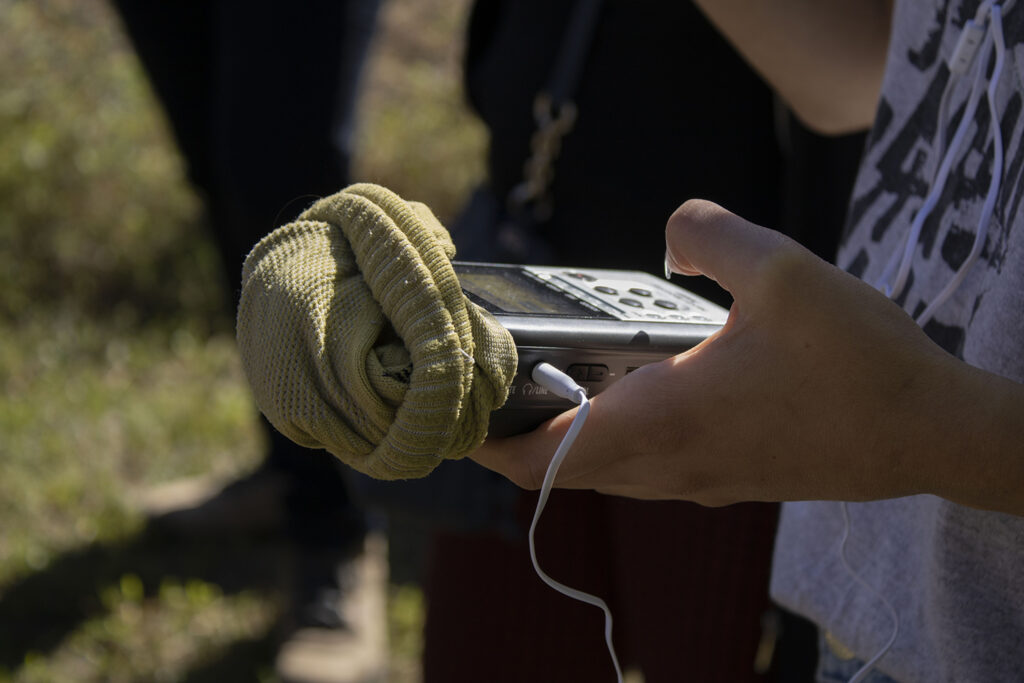
Photographs by Nazario Tiul / ACOFOP
The Jitontik community radio -Jitontik is the original name of the community that today is called Abasolo- was born from the initiative of a group of indigenous youth, who without resources or prior training began the dream of sharing their feelings with their community in their original Mayan language: Tseltal. They bought a “tiny” transmitter that throughout the process survived three lightning strikes, the removals, and the sabotage of the authorities and other local groups, such as the Zapatista bases themselves.
“The Zapatistas got into our frequency. It was until we talked to them, we told them about our project, which was our own, we were not from the government, we were young people from the community, and thus, they left us, they supported us ”, said Jesús «Why do we continue? Because people listen to us, they ask us to continue. Now we are here, in our house, nobody can take us out, and people support us when we are needed. They come and bring us what little they have to support the radio.»
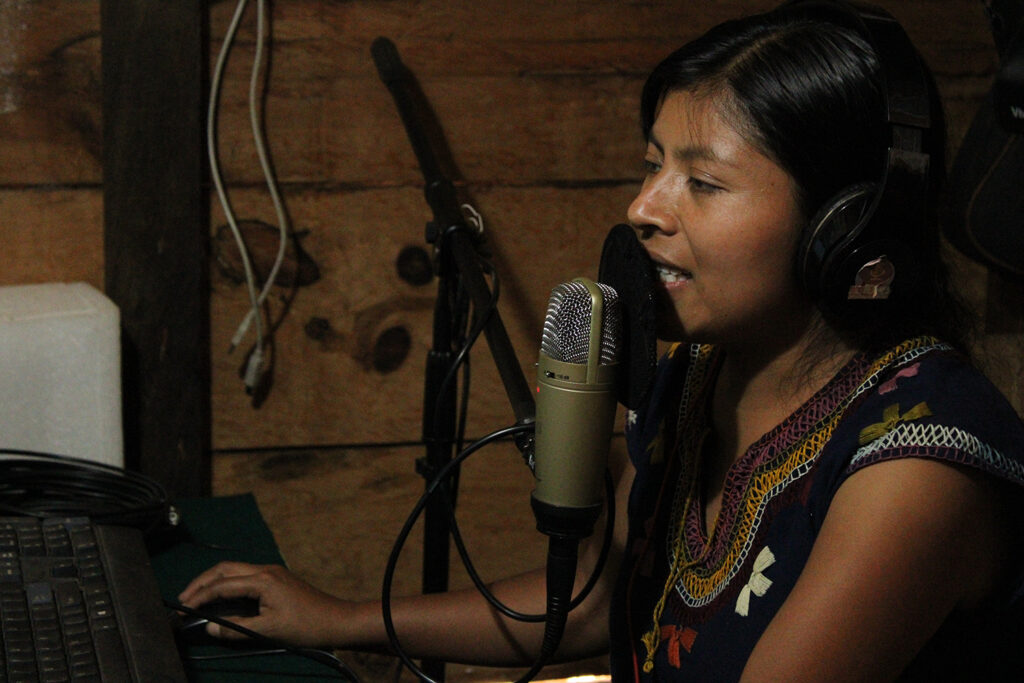
Photographs by Nazario Tiul / ACOFOP
The radio, Geno tells us, has given women a voice like never before in community life, it has created a space for expression and transmission of knowledge. «They invite me, they welcome me to their house, we get together, we talk and they tell me, if I wasn’t telling you, I wouldn’t have anyone to tell.»
On the second day in Abasolo, we met with Luis Ramón Alvarado Pascacio, known in the region (and internationally) as “teacher Luis Ramón”. With him, we share the story of his life dedicated to teaching and building the technological autonomy of indigenous peoples. Luis Ramón created the Jnoptik Intrabach intranet in which educational and community content is contained on a server. Content can be freely consulted from any electronic device through a Wi-fi connection. Without the need for the Internet, students and the general public can consult books, encyclopedias, videos, tutorials … as long as it is free to use and reproduce.
Together with colleagues from the radio station and teacher Luis Ramón, we learned about the technical details of the radio and the intranet, we explored concepts such as technological autonomy and free software, which have been pillars of autonomous community processes. We ended this incredible visit by sharing Geno’s voice and sending greetings over the radio.
Thus, we left Abasolo with San Cristóbal de las Casas as the destination to continue the exchange activities with the Boca de Polen and Redes A.C. colleagues.
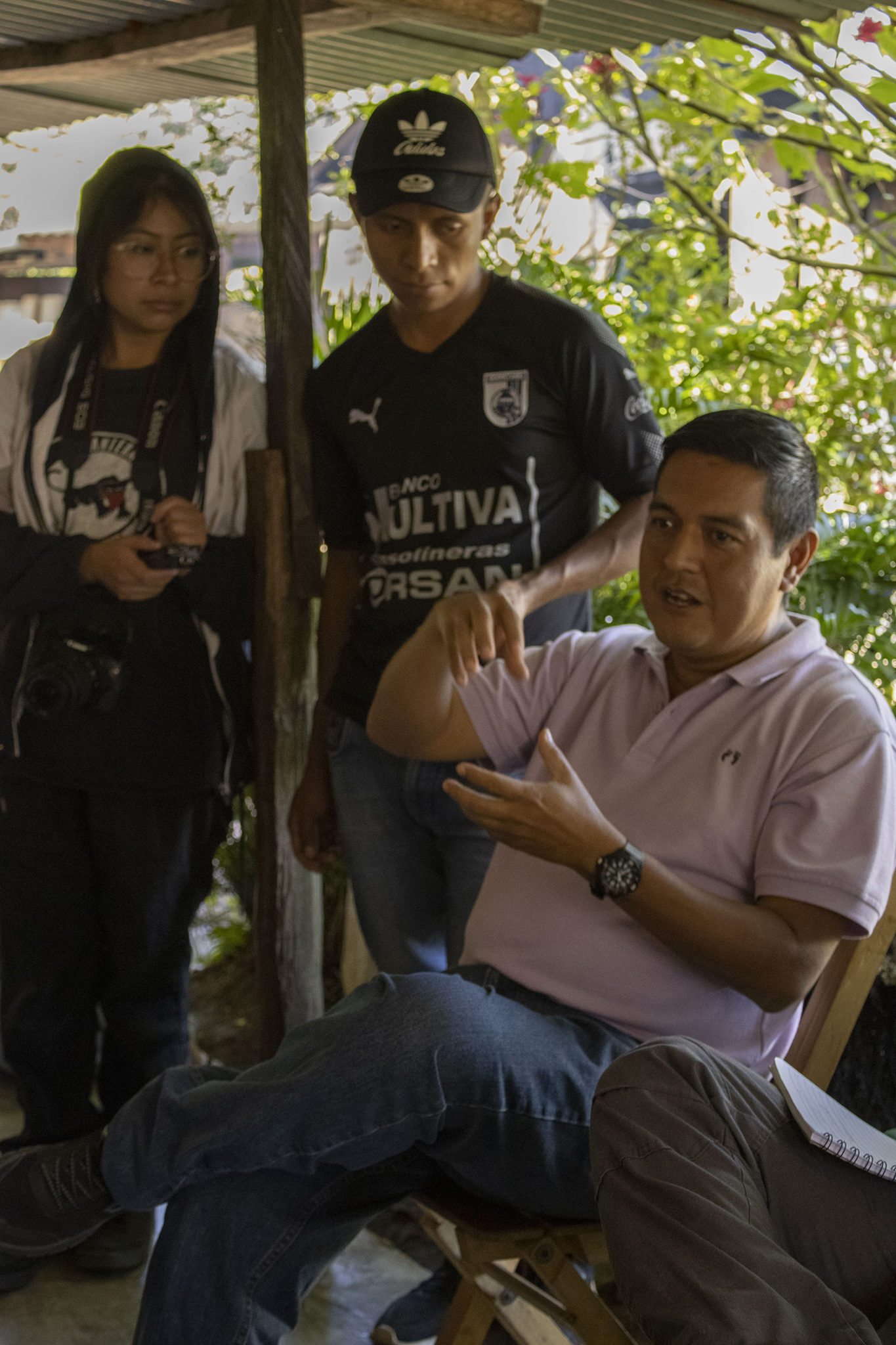
Photographs by Nazario Tiul / ACOFOP
During the first working session, the Mesoamerican School of Leadership was presented and especially the work of the Association of Forest Communities of Petén ACOFOP in the conservation and sustainable community management of the Maya Biosphere Reserve (RBM).
In this space, each young representative explained the history and origin of their communities and organizations, as well as their commitment to managing and monitoring the reserve, also introducing the connectivity problems of their communities.
Boca de Polen did the same by sharing with us the 20 years of history and work of the organization in the technical and journalistic training of members of indigenous and peasant communities and organizations. Through their manifesto, they shared a bit of reflection, deep questions after two decades of communicative and community work, to reaffirm their vocation to travel like pollen, through the wind to fall on fertile land and continue generating new life. This pollen now flies together with the young of the EML towards the Petén.
Finally, María and Adrián de Redes por la Diversidad, la Equidad y la Sustentabilidad A.C. shared some of the organization’s experiences accompanying community processes such as Community Cellular Telephony in Oaxaca and Puebla, Mexico. They also shared with the young people of Petén the methodology that they have built throughout the adventures, challenges, and achievements of the communities themselves, to close the session with an introductory workshop on autonomous servers.
In this exercise, they invited the young leaders to use this methodology and think, together with their communities, of their own communication strategies starting from the ground they tread, that is, from the needs of the territory but also from its strengths, such as the territorial organization that it has built around sustainable community forest management. And most importantly, starting from their dreams, the dreams of young people for the communities and territories they want to build: forests forever, forests for my people.
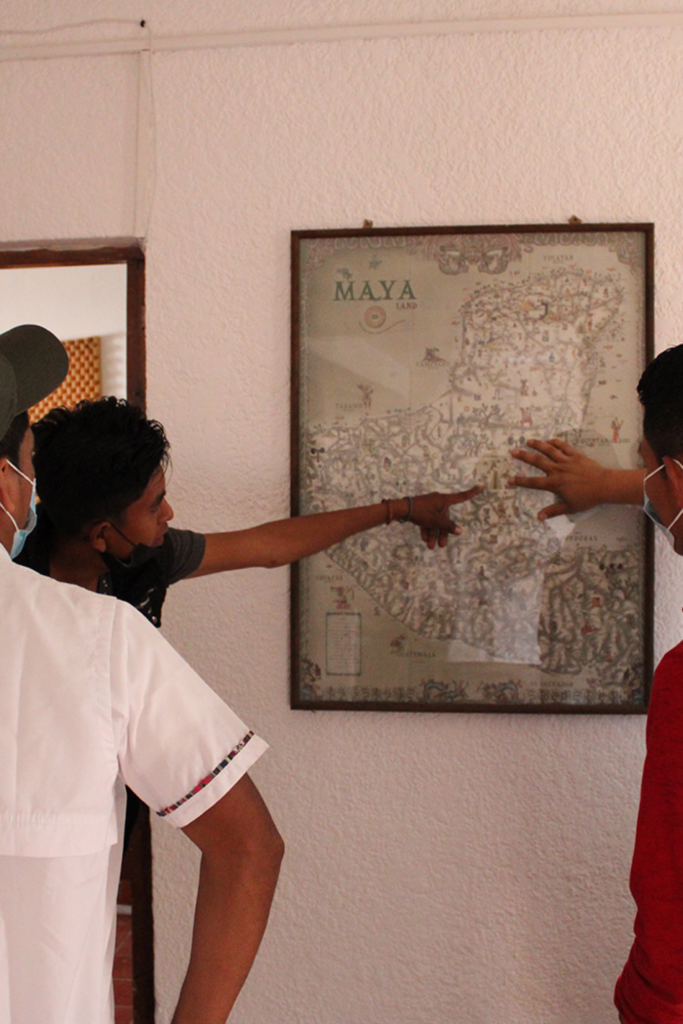
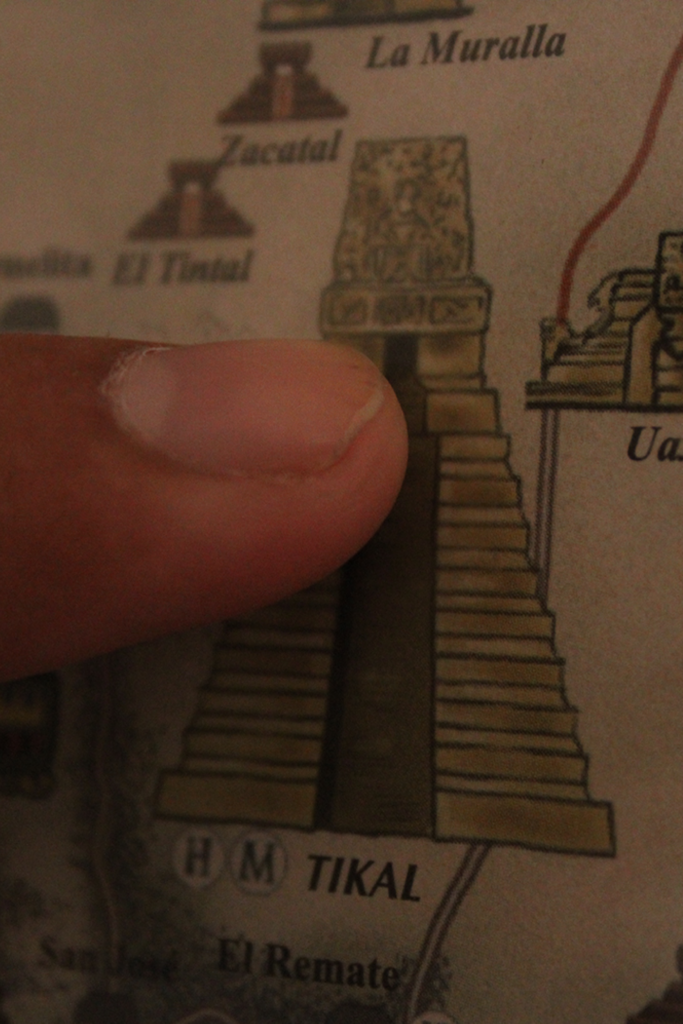
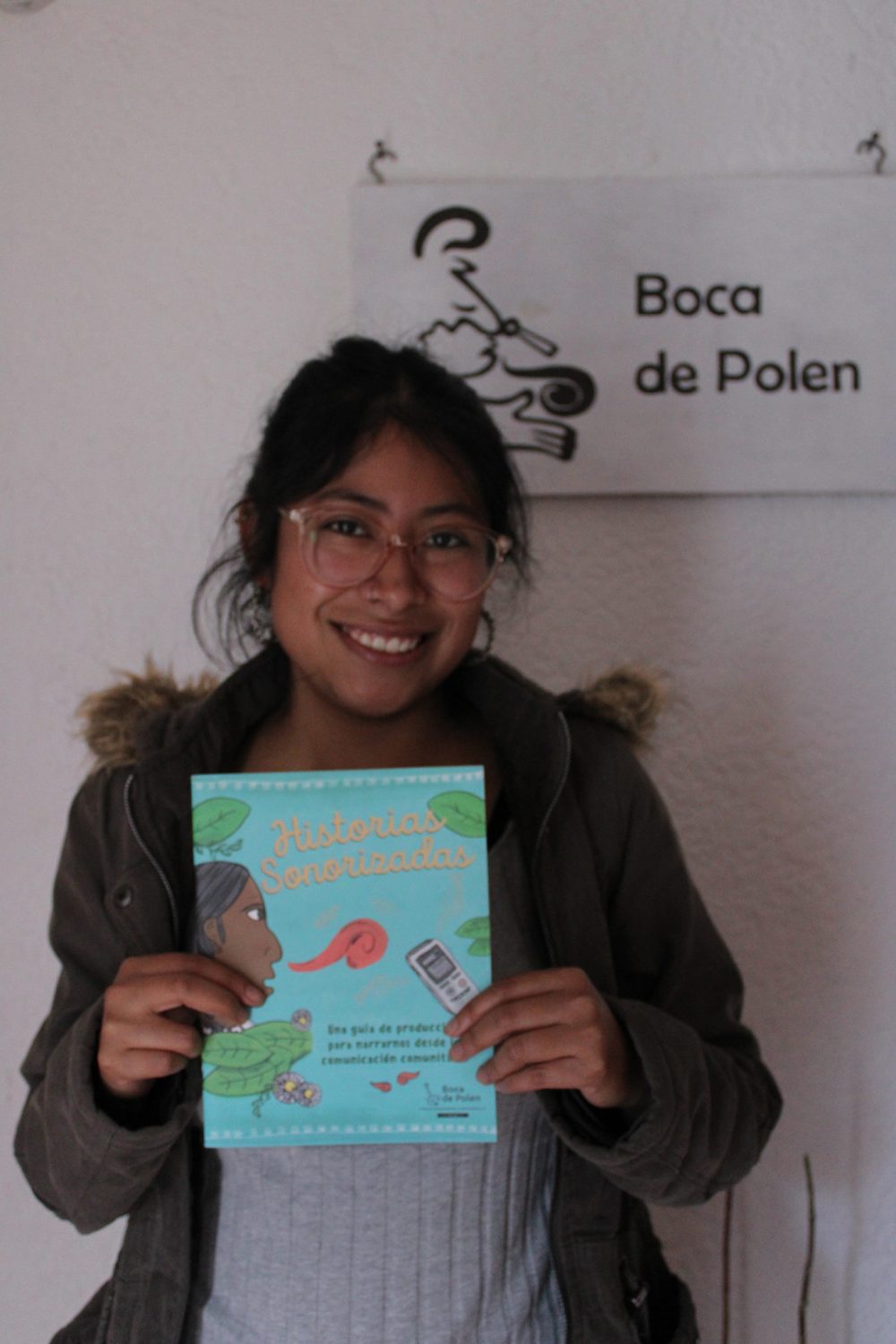
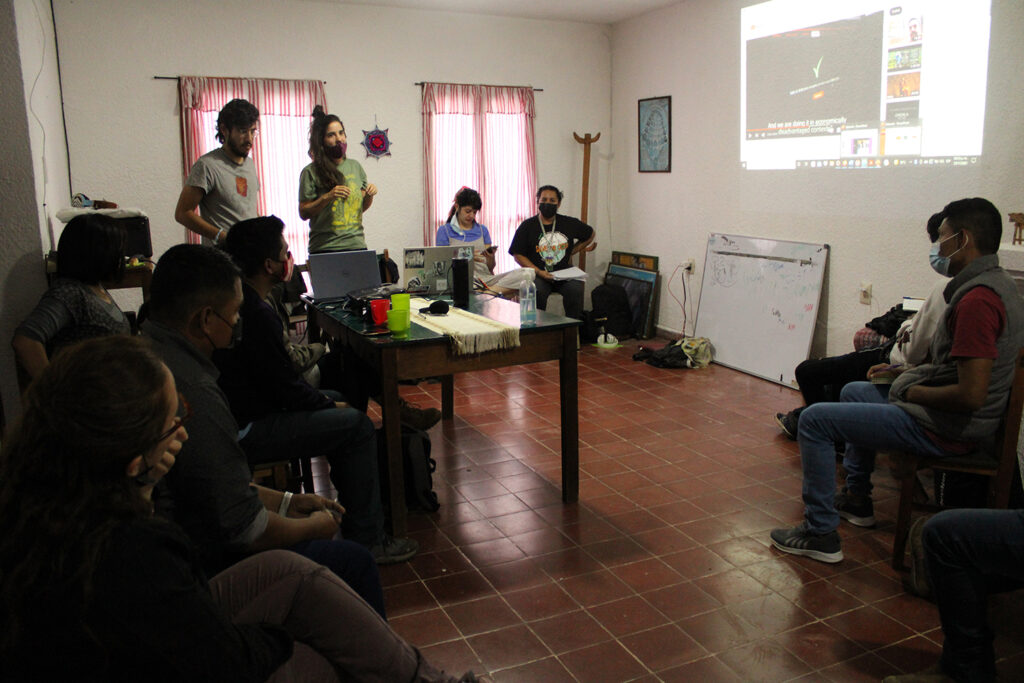
Photographs by Nazario Tiul / ACOFOP
This exchange was organized by The Invisible Thread (TINTA) through the Weaving Ties initiative, together with the Mesoamerican School of Leadership (EML), which is part of the Mesoamerican Alliance of Peoples and Forests (AMPB), a coalition of regional and local authorities of the main forests from Mexico to Panama.
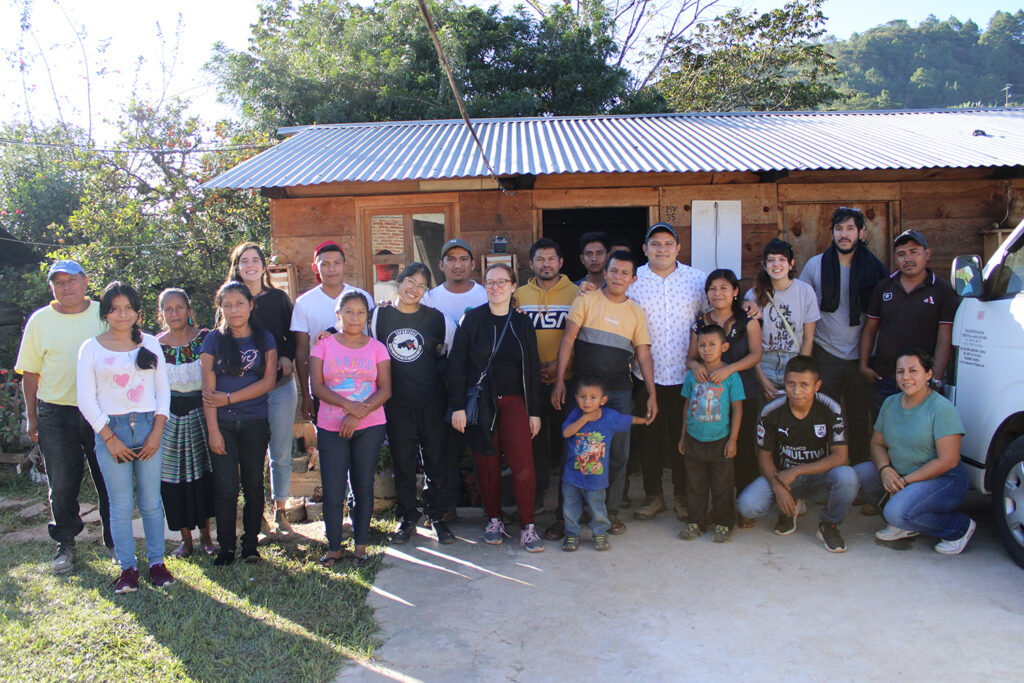
Photographs by Nazario Tiul / ACOFOP